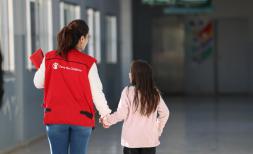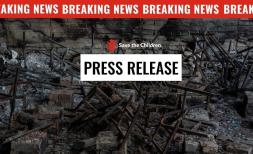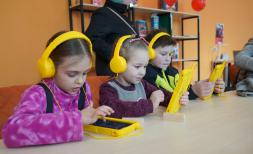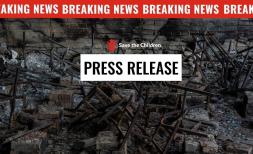Stranded, stateless, detained: new report reveals 700,000 Rohingya children are denied basic rights across Asia
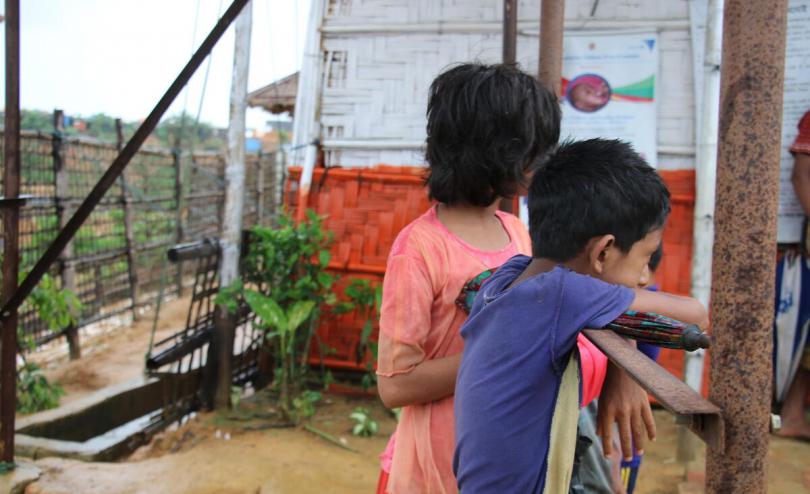
Save the Children reveals that some of the world’s most persecuted children are denied safety, citizenship and education in five countries across Asia.
More than 700,000 Rohingya children across Asia face severe discrimination and denial of their most basic rights, Save the Children said today.
According to a new report to mark World Refugee Day, No safe haven, Rohingya children across Myanmar, Bangladesh, Malaysia, Thailand, and Indonesia are prevented from accessing quality education and legal protection, which can expose them to abuse, child labour, child marriage, trafficking and detention.
Of the at least 700,000 Rohingya children in Asia, most live outside their home country, Myanmar. The majority now is in Bangladesh, where nearly half a million children are living in refugee camps. But large numbers of Rohingya have also taken refuge in other neighbouring Asian countries.
Malaysia hosts more than 100,000 Rohingya refugees - around a quarter of whom are estimated to be children. Thailand (3,000-15,000) and Indonesia (several hundred) host the smallest Rohingya populations of the five countries, with no exact estimates of the number of children. Some 234,000 Rohingya children remain in Rakhine State in Myanmar, of whom around 69,000 are confined to squalid camps. All are subject to severe restrictions on their movement.
The Rohingya community in Myanmar has experienced decades of state-sponsored persecution and violence. According to Save the Children’s report, neighbouring countries often fail to act as safe havens, as Rohingya refugees continue to be demonised, discriminated against and treated as criminals – locked up in immigration detention centres or left to die on boats trapped at sea for months.
Rohingya girls and boys living outside of Myanmar told Save the Children that they are afraid to leave their homes in case they are detained and deported as ‘illegal immigrants’.
At just 15 years old, Abul*, now 16, left his family in Myanmar and escaped to Malaysia, where he has lived for around 18 months. He said:
“[In Myanmar] my family and I were persecuted from all sides. I wasn’t allowed to work and I was discriminated against there. People harassed us, and my mother and my sister were beaten when I was young. Because we are Rohingya, we were discriminated against, and we weren’t allowed to go out in the evening. If we went out in the evening, the police beat us or arrested us. Sometimes, they took Rohingya youths to the police station and tortured them.
“Once I arrived here, the lockdown started and it became hard to survive. I thought that I could find a job to support to my mother and sisters, but in reality, it is hard to get a job [without papers]. Ever since I arrived, I’ve been afraid of being arrested. I can’t go out [with my friends] when they call me to play because I don’t have documents here. I’m afraid of police and of being arrested.”
15-year-old Hamid* left Bangladesh with his father in March last year, bound for Malaysia. They were at sea for seven months before the boat landed in Aceh, Indonesia. Shortly before they came ashore, Hamid’s father died, leaving him –14-years-old at the time – without anyone to look after him. He later embarked on a perilous boat journey to join his relatives in Malaysia. He said:
“When my father died on the boat, I felt so sad and I cried a lot. After I reached Indonesia I missed him so much, I cried every day for three months. When all the people from our boat came to Malaysia, I decided to go with them. When we arrived in Malaysian waters, I was arrested by police. The police detained me and the other Rohingya people. I worried for my security... I was afraid of being imprisoned for a long time. After two weeks, the police handed us over to UNHCR [The UN Refugee Agency].”
Myanmar does not recognise Rohingya people as citizens, which complicates their asylum claims abroad and leaves children vulnerable to various forms of abuse in all of the four countries, Save the Children found, including:
- Statelessness and lack of legal status: While Myanmar denies citizenship to the Rohingya population as a whole, none of the other four countries in practice grant citizenship to Rohingya refugee children born on their shores - nor are they officially recognised as refugees. This exposes them to crackdowns, deportations and arbitrary detention and means they are mostly unable to access healthcare and other basic services.
- Difficulties accessing education, either because of explicitly discriminatory rules which exclude them from school, or because policies that should enable them to go to school are not enforced. In Thailand, for example, all children have the right to basic education regardless of their legal status, but this is patchily enforced and Rohingya children continue to slip through the net.
- Child marriage and early pregnancy: Financial pressures and cultural attitudes about girls’ education mean Rohingya adolescent girls are even less likely to go to school, and more likely to be married off early.
- Arrest and detention, and confinement in immigration detention centres and refugee camps.
- Anti-Rohingya sentiment and discrimination, sometimes circulated online and in media by state officials, which threatens children’s safety.
The COVID-19 pandemic has made the situation for Rohingya refugees even more challenging, as governments tighten movement restrictions and close national borders, making migration journeys that are already perilous even more so. Authorities in several countries have used the pandemic as a pretext for pushing back boats carrying refugees, arresting and detaining undocumented migrants, and imposing restrictions on aid.
As economies have slowed down and employment opportunities have dried up, families have struggled to support themselves, leaving Rohingya children at increased risk of exploitation, child labour and trafficking.
The situation in Myanmar has also become increasingly unstable since the military coup on 1 February, following which thousands of people have been arrested and hundreds killed, making the prospect of safe return for the hundreds of thousands of Rohingya refugees living in camps in Bangladesh increasingly remote.
Hassan Noor, Asia Regional Director at Save the Children, said:
“With the magnitude of atrocities they have faced, Rohingya children are among the most persecuted in the world – failed by both their own countries and those they have fled to. Unjustly denied citizenship in Myanmar, they face discrimination and exclusion wherever they go. They are denied their most basic rights – the chance to go to school, to feel safe in their own homes and to live free from discrimination and prejudice.
“The root causes of this crisis lie in Myanmar, where decades-long segregation and violence must end. But governments in the region also have the power and the responsibility to guarantee the rights, safety, dignity, and humanity of Rohingya living within their borders, and to ensure that they are able to survive and thrive as a community.
“The need to ensure that Rohingya are safe, respected, and protected is as pressing as ever. This begins with granting them citizenship in Myanmar, but it also means ensuring their rights as refugees are respected in other countries, including children’s right to an education. Without this, a generation of Rohingya children will be unable to improve their lives or contribute to the countries they live in.
*Name changed to protect identity
NOTES TO EDITORS
Save the Children estimates that there are at least 700,000 Rohingya children living in the five countries examined in this report: Myanmar, Bangladesh, Malaysia, Thailand and Indonesia. This is based on public information and other credible sources:
- In Myanmar, some 243,000 Rohingya children remain in Rakhine State, some 69,000 of whom live in displacement camps according to the United Nations and humanitarian agencies. [Source: Humanitarian Country Team in Myanmar, Myanmar Humanitarian Response Plan 2021 (HCT in Myanmar, 2021 HRP), 27 January 2021, p. 6 and 19, https://reliefweb.int/sites/reliefweb.int/files/resources/mmr_humanitarian_response_plan_2021_final.pdf; CCCM/ SHELTER/ NFI Cluster Analysis Report (CAR) - Central Rakhine and Chin, Myanmar, Jan-March 2021, https://reliefweb.int/sites/reliefweb.int/files/resources/Shelter_NFI_CCCM_Rakhine_Cluster_Analysis_Report_31_March%202021.pdf.]
- In Bangladesh, there are 461,266 Rohingya children living in the refugee camps in Cox’s Bazar District according to the UN [2021 Joint response plan: Rohingya humanitarian crisis, January-December 2021, May 2021, p. 8, https://reliefweb.int/sites/reliefweb.int/files/resources/2021_jrp_with_annexes.pdf]
- In Malaysia, there are 102,560 registered Rohingya refugees, while Rohingya groups estimate that there are an additional several thousand living unregistered in the country. There is no publicly available data of the number of Rohingya children, but based on estimates by NGOs and on the proportion of children of the overall refugee population, Save the Children estimates that at least one-quarter (some 25,000) of the Rohingya refugee population are children. [Sources: UNHCR, Figures at a glance in Malaysia, https://www.unhcr.org/figures-at-a-glance-in-malaysia.html, accessed 19 May 2021; Save the Children interviews.]
- In Thailand, there are no official figures publicly available on the number of Rohingya in the country, however NGOs estimate there are between 3,000 and15,000. [Sources: Still Adrift: Failure to Protect Rohingya in Malaysia and Thailand, Refugees International, November 2016, p. 11, https://www.refugeesinternational.org/reports/2016/rohingya. The International Organization for Migration (IOM) estimates that up to 21,000 “Myanmar Muslims” – which includes Rohingya – live in northern Thailand. IOM, Promoting Stability, Well-being and Harmony for Myanmar Muslim and Host Communities in Thailand, https://thailand.iom.int/sites/thailand/files/Infosheets/AUP%20project%20summary%20infosheet.pdf, accessed 23 May 2021.]
- In Indonesia, the total Rohingya population is estimated to several hundreds, however numbers fluctuate as new arrivals often leave for Malaysia or other locations as soon as they are able to. [Source: Save the Children interviews with local NGOs and other actors.]
For more information and interview requests please contact:
Charlotte Rose; Charlotte.Rose@savethechildren.org
Emily Wight; Emily.Wight@savethechildren.org; +44 (0) 7557 015 031
Out of hours (BST) Media@savethechildren.org.uk, +44 7831 650 409
A link to new content from Cox’s Bazar
